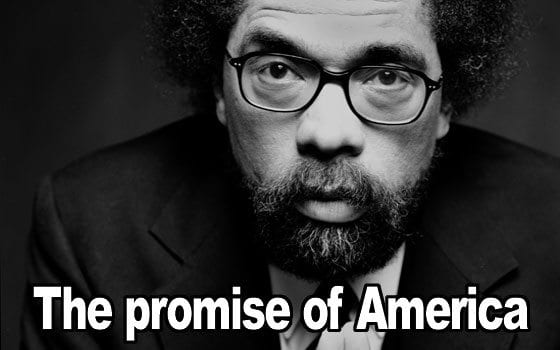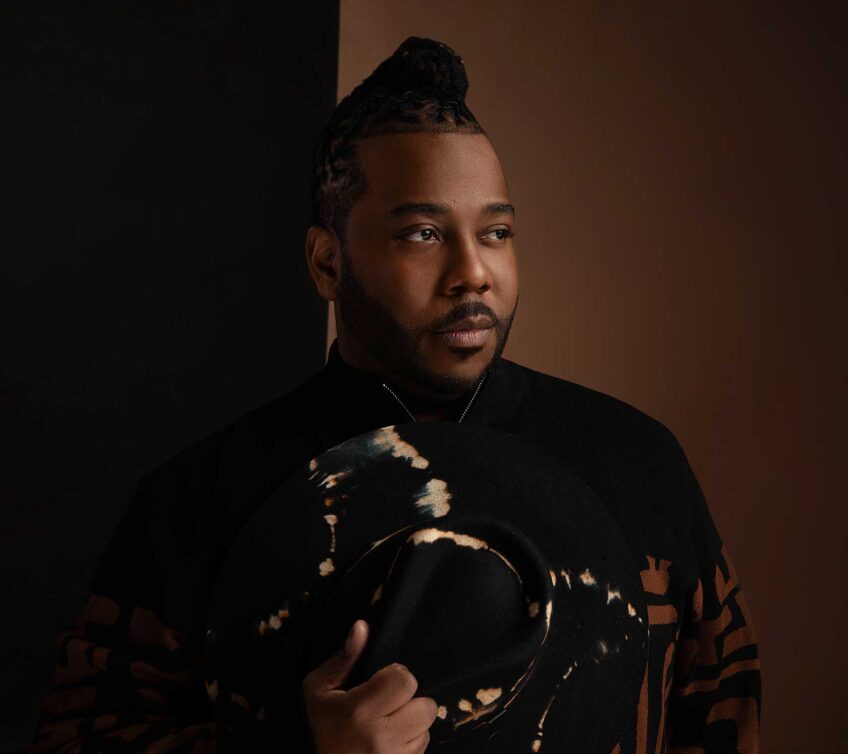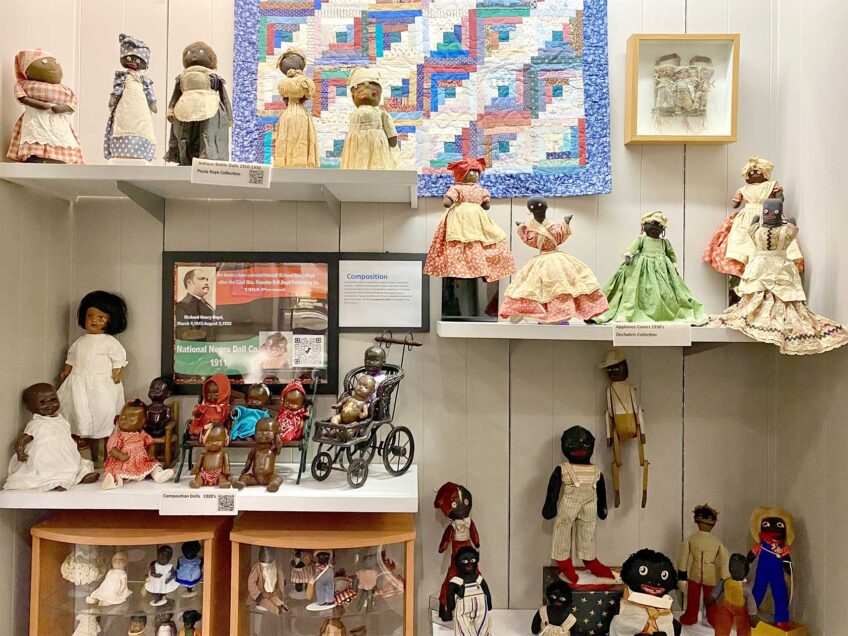Noted public intellectual Cornel West discusses his views on making the nation better

Noted public intellectual Cornel West discusses his views on making the nation better
Cornel West is a prominent and provocative public intellectual dedicated to democracy. Currently the Class of 1943 University Professor at Princeton University, he graduated Magna Cum Laude from Harvard in three years and obtained his M.A. and Ph.D. in Philosophy at Princeton.
Since then, he has taught at Union Theological Seminary, Yale, Harvard and the University of Paris. He has written 19 books and edited 13 other. He is best known for his classic “Race Matters,” as well as “Democracy Matters,” and his recent memoir, “Brother West: Living and Loving Out Loud.”
He appears frequently on “Real Time with Bill Maher,” “The Colbert Report,” CNN and C-Span as well as on Tavis Smiley’s PBS-TV Show. And since last fall, he can be heard regularly on “The Smiley and West” radio program. He has also appeared in more than 25 documentaries and recorded three spoken word albums.
In short, West has a passion to communicate in order to keep alive the legacy of Dr. Martin Luther King Jr. — a legacy of telling the truth and bearing witness to love and justice. Here, he talks about participating in Tavis Smiley’s recent forum “America’s Next Chapter” where a panel of luminaries wrestled with the question, “How do we make America as good as its promise?”
I love that “America’s Next Chapter” is a multi-ethnic forum. Why aren’t there more multi-ethnic forums of this type?
I think it has to do with the vision of my dear brother, Tavis Smiley. There ought to be more forums like this which are concerned with informing folks about some of the painful realities of our country. It would be wonderful for them to be multi-cultural and multi-racial but, most importantly, they have to be willing to speak to those truths.
Given our cultural history, is there more of an onus on African Americans to be more inclusive with social and national discourse?
I think that’s certainly the case, because there’s no doubt that many of the mainstream white institutions tend to be cosmetic and symbolic when it comes to including African Americans, whereas we black folk tend to be much more sensitive about embracing others, and we have a long history of that.
After the “State of the Black Union,” some people said it was just a bunch of talk. Then “The Covenant with Black America” was published. Haven’t heard much about that lately. Where does “The Covenant” stand today? Any work being done in our communities based on that document? Has “The Covenant” been upheld in your opinion?
I don’t think talk is just talk. I firmly believe that talk can change people’s lives. Each life is precious. Talk can’t change a whole society, but it is not to be degraded or devalued. Talk is very important and not to be trashed. As for “The Covenant,” we had volume two, “The Covenant in Action,” which built on the first volume in conjunction with local activists all across the country. And volume three, “Accountability,” was a call to keep track of all the promises that President Obama made. So, I think that what was originated by “The Covenant” is still ongoing. But unfortunately, when you look at the Obama administration, it hasn’t done that good a job at all in terms of poor and working people. It has been much more beholden to Wall Street oligarchs, and to pharmaceutical and private insurance companies.
At the point where President Obama is now, what would be your view on what he would need to do to improve his chances for re-election? And would focusing more on the African American community’s problems help or hinder his re-election?
Re-election ought not to be the primary preoccupation of any politician. It ought to be standing up for truth and justice. If he is to be a statesman, he would act like Lincoln, and stand up for something that might be unpopular but not allow the right-wing to dictate the agenda, meaning Fox News, the Tea Party and others.
Given the bleak economic outlook due to corporate malfeasance, global outsourcing and a decline of empire, and with the U.S. facing challenges that were never as pervasive, is there any cause for optimism that American ingenuity and can-do spirit will help turn the country around?
That’s a deep question. I don’t think there are any grounds for any sentimental optimism. But black folks have never really been optimists. We’ve been prisoners of hope, and hope is qualitatively different from optimism in the way that there’s a difference between The Blues and Lawrence Welk. The Blues and Jazz have to do with hope while the other is sugarcoated music which has to do with sentimental optimism.
What does “America’s Return to Greatness” mean? Has America been great to and for all groups in this country? Is greatness domination or collaboration? Can American greatness permeate the class structure and have a multi-ethnic approach?
So much hangs on your definition of “greatness.” I’m a Christian. I believe that greatness has to do with the quality of love shown to the least of thy brethren and the quality of service to those who are catching hell. When you look at it in that sense, I’d say America has had great moments, but I wouldn’t call it a great nation. I don’t think there have been any great nations in the history of the world, because in every nation you find poor people being subjugated. So, I see the term “great nation” as a contradiction, as an oxymoron.
Do you think that an increase in grassroots activism by the political left will counter the activities of those on the right? It seems that the Tea Party and their ilk have had an impact, based on the last election.
That’s a very good question. The most important assets we have are our bodies and our energy which can be put to good use as resources in political activism for poor and working people.
I’d like to know what you think of the movement to pay teachers based on merit. Children, urban children specifically, come to school with a lot of issues that prevent them from learning or even being in the frame of mind to learn. Do you think merit pay might simply push troubled kids further behind?
For one, I feel that the recent demonizing of teachers and the teachers’ union is nothing but scapegoating. Therefore, all the talk of merit pay is part of that kind of mentality that wants to view the teachers as somehow the culprit, especially in our urban centers and rural pockets of poverty. Finland is the No. 1 country in the world in terms of education, and 98 percent of their teachers are unionized, and their students don’t take standardized tests at all. What they do have is an average class size of just 14 students, with 2 teachers in each classroom. That’s what exclusive prep schools like Andover, Exeter, Lawrenceville and the school that Barack Obama’s kids go to. Until we reach the point that we treat our precious poor children the same as we treat our rich children, all this scapegoating of teachers is just an excuse to not confront the real issue.
During segregation, the U.S had signs reading: “No Colored” and “Whites Only.” Now we hear: “You’re not a good fit for the organization.” What can be done to help African Americans enter the job market and break the glass ceiling?
Again, so much has to do with going beyond treating black people as cosmetic and symbolic items, as opposed to genuine personalities and human beings. And that is a deep moral and spiritual issue, which can of course be backed up by Civil Rights Commissions which enforce the laws against any form of discrimination.
About 4.2 percent of all physicians are black, 3.8 percent of all lawyers are African Americans, barely 5 percent of all college professors are black, and the majority of them are in HBCUs. Only 3.7 percent of all engineers are African Americans. Given those statistics, do you think that affirmative action is effective enough? What can be done to correct this situation?
I think we need much more affirmative action across the board. There’s no doubt about that. But Affirmative Action is not the primary issue in and of itself. The primary issue is that we need for more young black people to fall in love with the life of the mind and to become voracious readers and writers. And we also need institutions of higher learning to be more receptive to black, brown, red and yellow talent.
With nearly 7,000,000 Muslims living in the U.S. now, how do you see Islam fitting into America’s next chapter?
Islam has always been a crucial part of America, and it is becoming even more crucial to America as a whole as more Islamic brothers and sisters come here and as more citizens convert. Islam has a rich, prophetic tradition. We need more prophetic Islam figures like Malcolm X. If we could understand and try to grasp Malcolm after Mecca, we’d have the greatest example of what it means to be a prophetic Muslim who loves the people, especially the poor and working people across color and across culture, and who has the courage to stand up.


![Banner [Virtual] Art Gallery](https://baystatebanner.com/wp-content/uploads/2024/04/Cagen-Luse_Men-at-store-e1713991226112-150x150.jpg)

![Banner [Virtual] Art Gallery](https://baystatebanner.com/wp-content/uploads/2024/04/Cagen-Luse_Men-at-store-e1713991226112-848x569.jpg)

